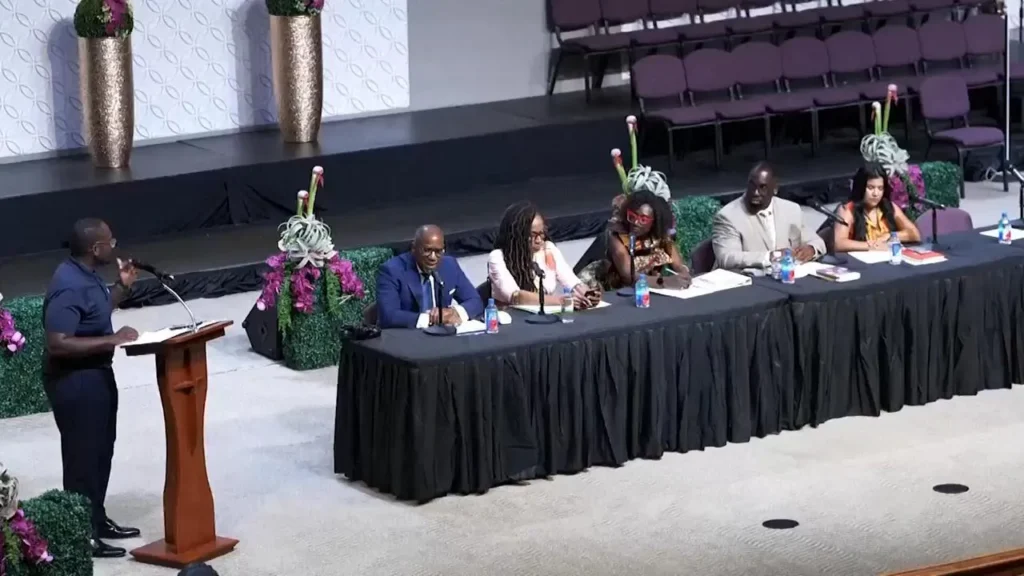Newsmatro

In a proactive response to what they perceive as the state’s “watered-down” approach to teaching Black history, more than 200 predominantly Black churches in Florida are taking matters into their own hands. They are now using their platforms to provide unfiltered lessons on Black history during Sunday school, Bible study, and sermons.
Faith in Florida, a coalition of churches advocating for social justice causes, has played a crucial role in this initiative. The coalition recently launched an online toolkit in July, featuring a curated selection of books, documentaries, and videos related to Black history. Their objective is to counteract state efforts to regulate Black history lessons and ensure that the rich historical narratives are not erased.
Pastor Kenneth Johnson of Friendship Missionary Baptist Church in Fort Pierce, Florida, conducted the first of a series of video classes on Black history. He emphasized the autonomy of churches in teaching their own history, stating, “We don’t need government approval to teach our history.”
This initiative comes in the wake of controversial policies championed by Florida’s Republican Governor Ron DeSantis, who has been at the forefront of restricting certain topics, including race, sexuality, and gender, in the state’s schools and colleges. These policies have sparked debates and criticisms, particularly for their impact on the teaching of African American history.
Earlier this year, Governor DeSantis signed legislation that prohibited the use of state funds to support diversity and inclusion programs at public universities. Moreover, the state banned the College Board’s Advanced Placement African American Studies course, which covers college-level material for high school students. DeSantis’ office referred inquiries to the Florida Department of Education, which did not respond immediately.
In response to these restrictions, Black churches are using the toolkit provided by Faith in Florida to guide their lesson plans. The toolkit covers various topics, including the trans-Atlantic slave trade and the Civil Rights Movement, offering a wide range of resources for teaching Black history.
While some may view this as a unique role for Black churches, historians highlight that they have a long history of filling educational gaps in their communities. Howard Robinson, a historian at Alabama State University, underscored the pivotal role of Black churches in providing educational opportunities, especially when public institutions fall short.
The initiative aims to reach not only those already familiar with Black history but also individuals new to the subject. As the toolkit continues to evolve and expand, it seeks to ensure that Black history remains an integral part of the educational narrative, not just in Florida but across the United States.
Despite the challenges posed by restrictive state policies, Black churches are reaffirming their historical role as centers of community engagement and education. They have stepped up to ensure that the truth about Black history is passed on, with the belief that knowledge of the past is vital to shaping a more inclusive future.